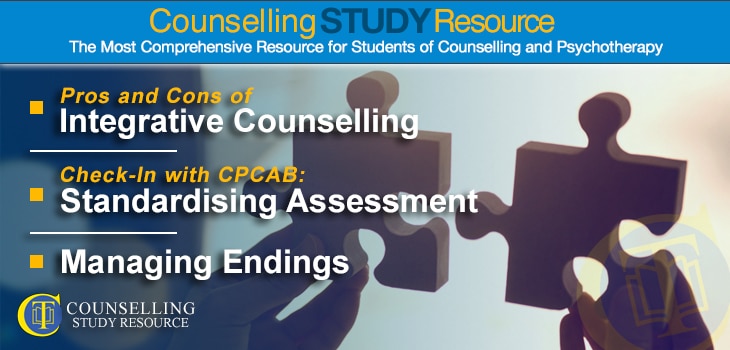Pros and Cons of Integrative Counselling (starts at 1.55 mins)
‘What is integrative counselling?’ and ‘What are the pros and cons of integrative counselling?’ are questions that are often posed on the Counselling Tutor Facebook group.
If you’re not already a member, do come along and join in our discussions of current topics in the world of counselling and psychotherapy with 28,000 counselling students, qualified counsellors and counselling tutors.
There is no single answer to these questions, but the term ‘integrative counselling’ is generally used to refer to a blending of two or more theoretical approaches in counselling to meet the individual client’s needs.
Integrative counselling began in the 1990s, when various theorists began to believe that blending modalities might be helpful. Some course providers now train students specifically in integrative counselling.
Different modalities do tackle clients’ issues in different ways – for example, person-centred therapy focuses on emotions while cognitive behavioural therapy (CBT) looks at thoughts and behaviours (and offers specific strategies and techniques to tackle certain issues).
While integrative counselling seeks to address any potential theoretical conflicts between modalities, eclectic counselling instead draws separately on different modalities as appropriate – in this sense, the latter is rather like having a tool box, the different contents of which practitioners use on an ad hoc basis.
Potential cons of integrative counselling include theoretical dilution and conflict in practitioners (who are required to blend two or more different sets of language).
Rory has written a handout on the pros and cons of integrative counselling; this is available here, or through the Handouts Vault and Counselling Study Resource (CSR).
On the Counselling Tutor website, you can also read an article by integrative therapist Erin Stevens, and download a handout on the four types of integration.



